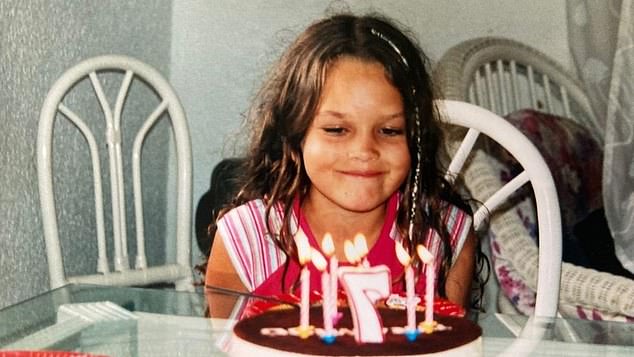The mother of a 27-year-old ME sufferer who was left bedridden and unable to eat in the final months of her life said she 'didn't have to die but she did'.
Maeve Boothby-O'Neill was found by a coroner to have died from malnutrition due to severe myalgic encephalomyelitis (ME), also known as chronic fatigue syndrome.
Her family believe her death in October 2021 exposed 'a major systemic failing' of the health service to both understand and treat severe cases of the condition.
Speaking to Good Morning Britain this morning, Ms Boothby said 'it was hilarious the way we were treated' by medical professionals.
She explained: 'We saw a paediatrician once a month for two years and she discharged herself twice from that because it was a complete waste of time.
'We spent all the time with him giving us a lecture on her single parent family background, her high-achieving status at school and that she needed to lower her expectations.'

Sarah Boothby speaking to Good Morning Britain about her daughter Maeve's death this morning

Maeve Boothby-O'Neill was found by a coroner to have died from malnutrition due to severe myalgic encephalomyelitis (ME), also known as chronic fatigue syndrome

The inquest heard how Maeve (pictured as a girl) had written to her GP asking for help in 2021

Journalist Sean O'Neill said his daughter Maeve Boothby-O'Neill, 27, 'fell into a huge hole in our healthcare system' and doctors had failed to help her ME symptoms

Maeve's mother, Sarah Boothby, was her full-time carer and struggled to look after her daughter on her own. The 27-year-old had been admitted three times to hospital for help with her feeding
A two-week inquest, which concluded last week, heard Ms O'Neill had been admitted to the Royal Devon and Exeter Hospital three times in 2021 for treatment.
In June 2021, she had written to her GP asking for help, saying: 'I don't understand why the hospital didn't do anything to help when I went in.
'I am hungry, I want to eat. Please help me get enough food to live.'
In the last few months of her life she was confined to a bed, unable to chew food and had difficulty drinking because she was unable to sit up.
Her mother Sarah Boothby became her full-time carer, while she worked part-time during the Covid lockdown.
Ms Boothby added: 'Maeve didn't have to die, but she did and from her death it has been learned how to manage very severe ME.
'She wanted to be active, she loved to dance, and she had to stop all of that. By the time it progressed to her not being able to eat the first thing she just couldn't chew. She couldn't get out of bed for more than one hour a day.'
She added: 'Maeve was a good person and she didn't want to die. When I say good, she was modest, and generous and intelligent and if her death gives a bit of that back to the world then her legacy is doing something good.'
Following the inquest's conclusion on Friday, public health minister Andrew Gwynne said Ms Boothby-O'Neill's death was a 'heart wrenching example of a patient falling through the cracks'.
He said the Government was committed to publishing a delivery plan this winter which will focus on 'boosting research, improving attitudes and education, and bettering the lives of people with this debilitating disease'.
But Ms Boothby-O'Neill's father, journalist Sean O'Neill, rejected the minister's characterisation of his daughter's death.
'Andrew Gwynne has spoken of his own battles with Long Covid and I know he understands post-viral illness,' he said.
'But Maeve didn't just fall through the cracks, she fell into a huge hole in our healthcare system.'









































































































































































































































































































































































